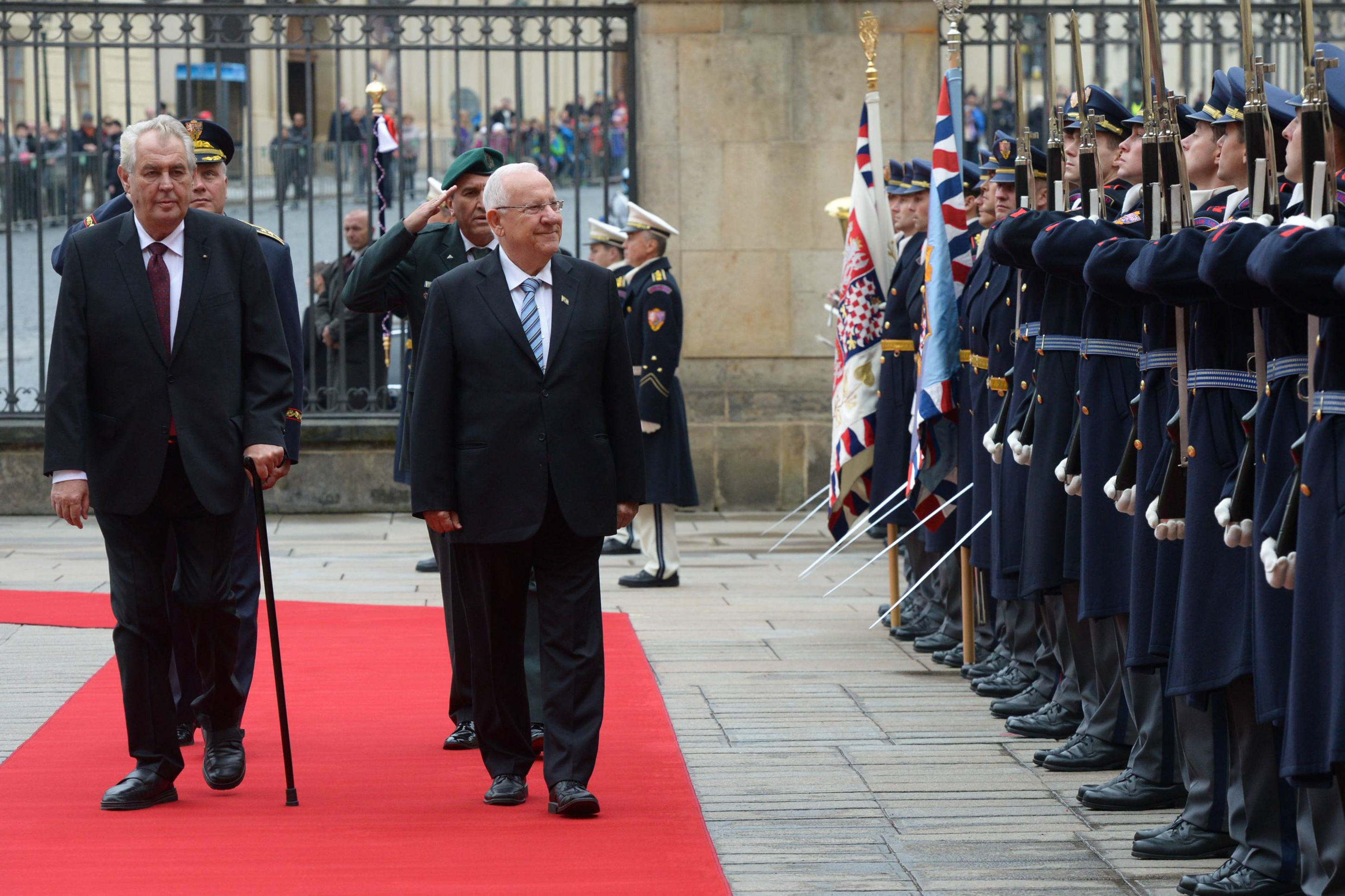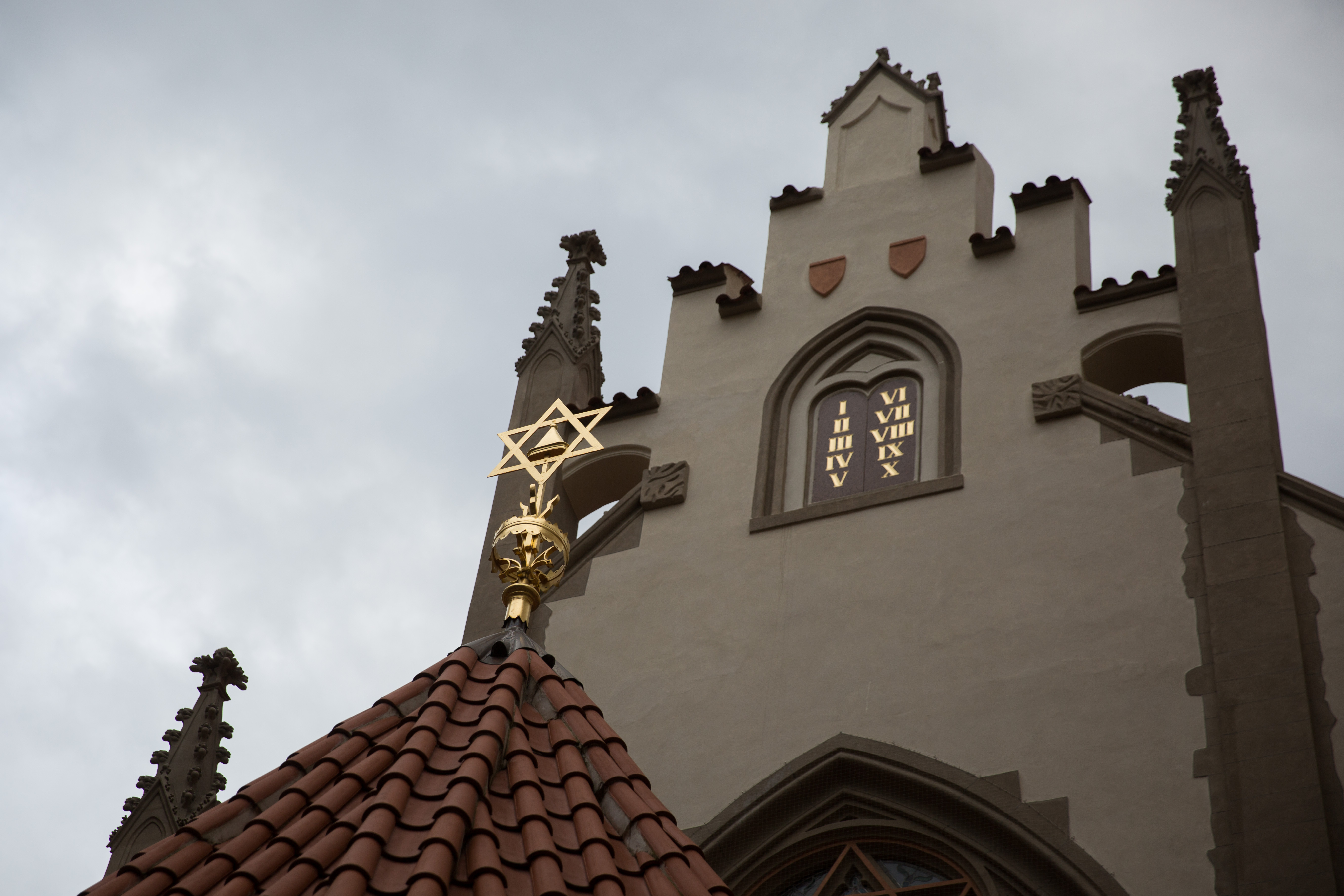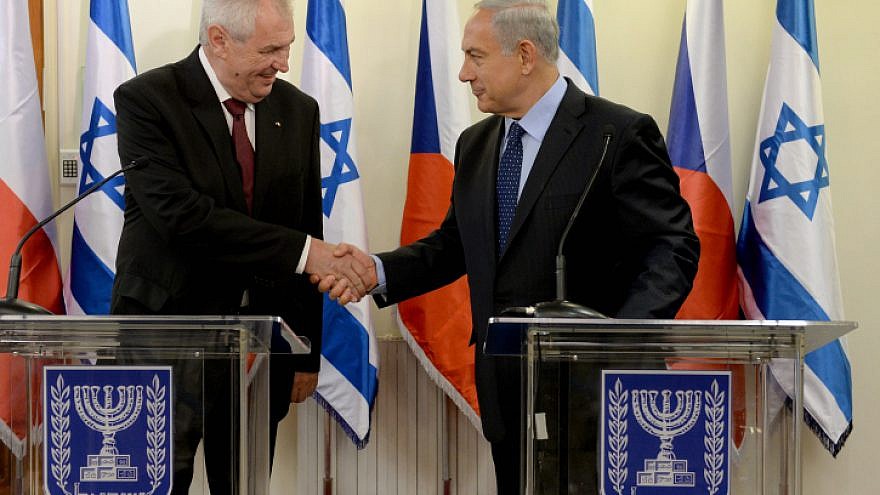The transfer of the U.S. embassy from Tel Aviv to Jerusalem on May 14 has spurred interest from several countries considering similar moves. Guatemala followed suit just two days later on May 16, and Paraguay and reportedly Honduras are planning to join their lead.
The Czech Republic may break with European Union policy and relocate its embassy to the capital city as well.
“There will be, I hope, three phases of removal of the Czech embassy from Tel Aviv to Jerusalem,” Zeman said at an event honoring Israel’s 70th Independence Day at Prague Castle.
“The second phase, well, we have many, many institutions: Czech Invest, Czech Trade, Czech Tourism, Czech Center. And all those institutions are to be transferred from Tel Aviv to Jerusalem,” he said.
However, Zeman did not clarify firm plans on the embassy move, and has only announced the reopening of an honorary Czech consulate in Jerusalem and a Czech cultural center in the city. At the same time, the Czech Foreign Ministry later downplayed Zeman’s intentions on the embassy move.
“The Czech Republic fully respects common policy of the European Union, which considers Jerusalem as the future capital of both the State of Israel and the future State of Palestine,” the Czech foreign ministry said.
Nevertheless, the strong stance by Zeman comes at a time when Israel is facing growing hostility in the European Union on a number of fronts—ranging from its policies towards the Palestinians, opposition to the Iran nuclear deal and now the Jerusalem issue.
Given all this, why is the Czech Republic seemingly so friendly towards Israel, while much of the rest of Europe, in particular Western Europe, is moving in a different direction?
‘Israel faces a similar experience’
Benjamin Weinthal, a German-based research fellow at the Foundation for Defense of Democracies, told JNS that the experiences of the 20th century under Nazism and communism for the Czech people may have shaped their current bond with the Jewish state.

“I strongly suspect the betrayal the Czech people experienced by the European powers in 1938, when their country was absorbed by the Hitler movement to bring about a phony peace process, has contributed to a joint sense of bonding with the Jewish people,” he said.
Indeed, the Czechs also played a major role in the helping Israel fight for its independence in 1948. Then known as Czechoslovakia, its government provided Israel with vital deliveries of weapons, including vital arms and even several Avia S-199 fighter planes, to secure their victory over the Arab states.
Weinthal noted that “the Czech nation has been surrounded by enemy nations—whether the former Soviet Union or Nazi Germany—and Israel faces a similar experience today with the U.S.- and E.U.-designated terrorist entity Hamas attacking Israel from the south, and the Iran/Syrian/Hezbollah alliance launching attacks on Israel from its northern border.”
An increase in business and investment ties
Recent years have seen an erosion in support for Israel among many of its traditional allies in Europe, such as Britain, France and Germany. Growing Muslim minorities in these countries—coupled with many active, far-left pro-BDS groups and traditional far-right anti-Semitism—has led to a rise in anti-Israel/anti-Semitic incidents and attacks in recent years.
However, the situation in Central and Eastern Europe is starkly different. While the small Jewish communities remaining in these countries do face threats from far-right nationalist groups, many also see Israel, with its robust high-tech economy and stance against radical Islam, as a strategic ally.

Speaking of the Czech Republic, Amos Uzan, CEO of Conbiz—a Prague-based business-consulting company specializing in the Israeli and Czech Republic market—told JNS: “You would find hardly any other country in Europe where you can feel more pride as a Jew and as an Israeli. The cooperation on all levels is excellent.”
Uzan said his company has seen a strong increase in demand for investment from Israelis interested in real estate or other fields in the Czech Republic. “They feel safe in Prague, and they are happy to give back to the Czechs that like and support Israel so much.”
“It would be great to have a strong research-and-development triangle of U.S., Israel and Czech Republic,” he continued. “Government to government meetings are useful, but many good projects are underestimated and not open enough.” One such example is the Gesher-Most program, which fosters international cooperation between Czech and Israeli enterprises in applied research and experimental development.
“Very positive is the free-visa exchange of youth people between the two countries,” noted Uzan. “They are the future.”
Weinthal concurred, saying that Czech-Israeli relations “are solid on many fronts.”
As he went on to describe, “the most recent example of robust Israeli-Czech relations was the decision of the Czech government to block an anti-Israel resolution condemning the U.S. relocation of its embassy to Jerusalem,” referring to a move by the Czechs, Hungary and Romania to block a E.U. statement slamming the U.S. embassy move from Tel Aviv to Jerusalem.
“The Czech Republic has protested against the planned statement,” Jiri Ovcacek, spokesman for Czech President Milos Zeman, told AFP last Saturday.
“Israel and the U.S. are key allies for the Czech Republic,” said Ovcacek. “Seventy years ago, Czechoslovakia helped Israel in its struggle for independence, and 100 years ago, the U.S. helped Czechoslovakia emerge” as a state.
A key litmus test
In 2016, the Czech parliament also passed a resolution urging the government to not implement the E.U. decision to labelling goods from settlements in Judea and Samaria.
More recently, in late April, the Czech-based Aero Vodochody and Israel Aerospace Industries signed a major partnership agreement to develop and market an advanced version of the L-159 trainer and light attack aircraft.
The Czech Republic has dedicated some $7.1 billion over the next 10 years to upgrade its armed forces, sending a military attaché for defense industries to Israel in charge of research, development and purchasing.
Nevertheless, the Czech Republic has taken some steps that might be problematic for its relations with Israel, including backing the E.U. position on the Iran nuclear agreement.
“The Czech Republic, as it has done in the past, will seek to continue to revive business relations with Iran—the top state-sponsor of terrorism. Iran’s state-controlled media reported in April that the Czech Chamber of Commerce has implemented a plan two years ago called ‘Towards Iran,’ ” said Weinthal.
While for the time being it remains unclear whether or not the Czech government will follow through with its promise to relocate its embassy, Weinthal sees it as vital measure for its ongoing relationship with the Jewish state.
Along with the nuclear deal, he said, “the relocation of the Czech embassy to Jerusalem will be a litmus test of Czech-Israeli relations.”


























